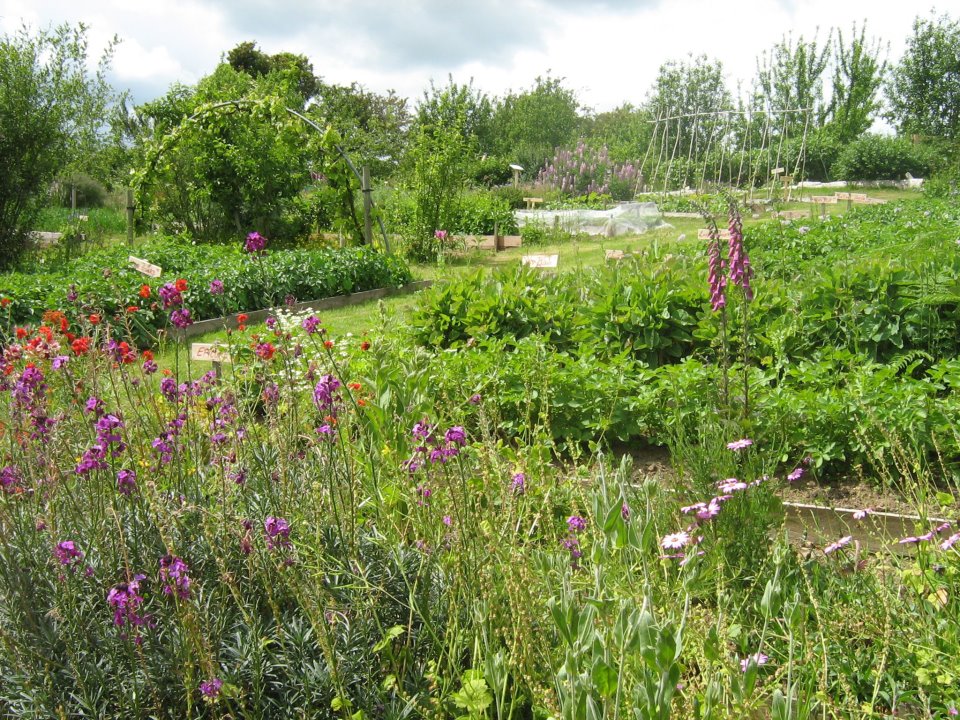
With Ireland edging towards reopening its organic farming scheme – closed since 2015 to new entrants, and closed in 2014 for a year too too – the context of organic farming within the overall agri-food sector is worth exploring. What would it mean for Irish agriculture in general to have a bigger, more vibrant organic sector? Particular attention is paid to the public goods of biodiversity and water quality.
Organic and conventional farming – two parts of a whole?
Sometimes viewed as a threat to conventional farming, there is also another way of viewing the relationship between the organic and conventional approaches to farming. One way is that a reasonably sized organic sector to improve their overall agri-food sector’s environmental, or, more broadly, public goods – performance. In other words, a large organic sector improves the overall score of farming in a number of necessary areas.
Our 2016 article on Reganold and Wachter’s research brings this sort of thinking to the debate. (Curiously, organic farming is rarely mentioned in the policy paper jointly published by IFOAM EU and Fibl most recently.)
Ireland has a sustainability programme running called Origin Green (often criticised, e.g. here and here) and sustainability has been written into its national plans for Agri-food – Harvest 2020 and more recent Food Harvest 2025.
It is also in a sustainability context that most of the EU and Irish Department of Agriculture organic farming documents are written.
For example, according to the Irish Department of Agriculture, along with reaching a growing market for organic food, “the overall objective of this Scheme is to deliver enhanced environmental and animal welfare benefits”.
That’s the opening line of the Organic Farming Scheme document itself, developed as it is from EU documents. (.PDF here Organic-Farming-Scheme)
These are the specific, named areas the EU and Department agree organic farming is funded under. These are:
- Restoring preserving and enhancing biodiversity
- Improving water management, including fertilizer and pesticide management
- Preventing soil erosion and improving soil management
- Resource efficiency – transition towards low carbon and climate resilient economy
- Carbon conservation and sequestration
In other EU and Department documents air quality is also cited, while the lower use of antibiotics in organic farming may also help with managing antimicrobial resistance.
So the overall farming score in these areas can be improved if there is a larger proportional land area dedicated to organic farming. In each of these areas there are targets and EU Directives. Inevitably then, there are fines to pay.
How is Ireland doing in each of these areas? Space permits this article to only cover two, so let’s assess the first two above – biodiversity and water quality.
Biodiversity and organic farming
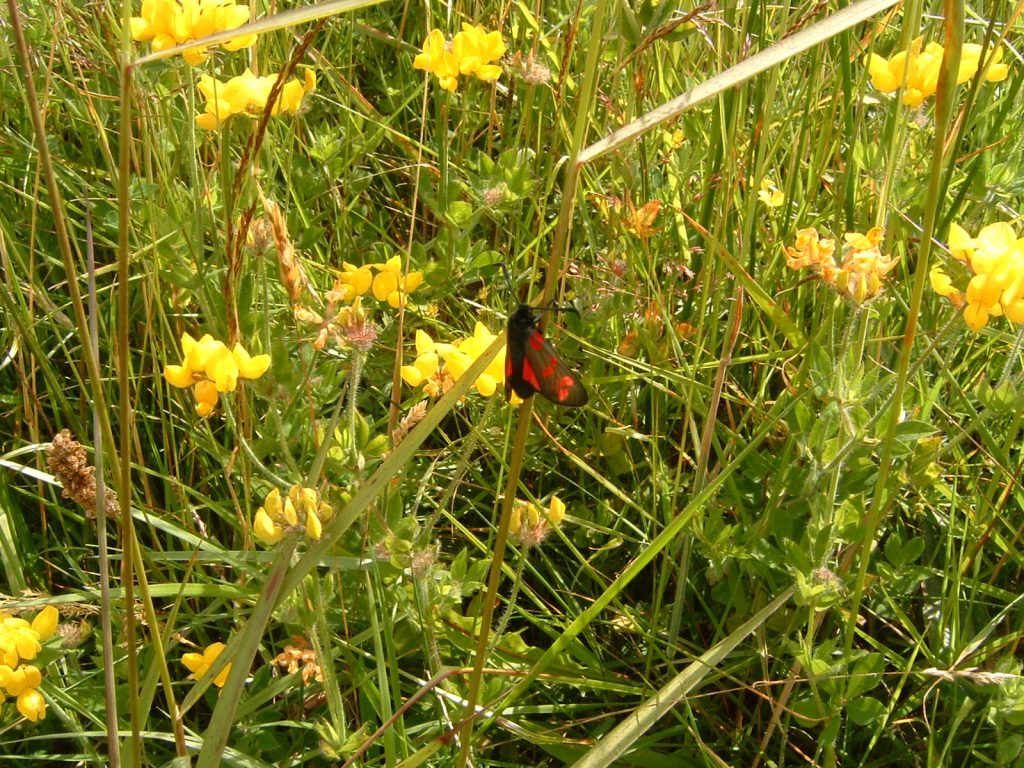
Biodiversity loss is covered under EU directives, and is happening all over the EU – including in Ireland. Indeed the rate is alarming, with 75% of flying insects lost in Germany in the last 25 years according to a recent study.
“Over 90 per cent of EU-protected habitats in Ireland (are) reported to be in poor status” Minister Heather Humphreys said last year at the launch of a major biodiversity report.
Farming is one of the practices implicated in biodiversity loss. A 2008 overview study (O’Brien et al) found that in 15 of the 21 studies analysed, conventional crop cultivation had a negative impact on biodiversity. This study found just one publication comparing organic and conventional farms. That one study found a far greater abundance and diversity of the taxa studied – in this case beetles – on organic farms. Since then, a tiny number of studies have been conducted comparing organic and conventional in biodiversity terms.
However the few studies – for example on dairy farms by Eileen Power and Jane Stout from TCD – show that the biodiversity performance is higher on organic dairy as compared to conventional dairy farms. As these authors stated:
“Organic farming was found to provide increased floral resources that attract more pollinating insects and pollination success was higher on farms under organic management”. More research by the pair (along with Daniel Kelly) also on Irish organic and conventional dairy farms found “organic management increases plant richness in field centres, but that landscape complexity exerts strong influences in both organic and conventional field edges.”
A caveat to add here – organic farming is not the panacea to biodiversity problems. Some also argue that the greater land area taken up by organic farms per yield leaves ‘less room for nature’.
Water quality and organic farming

Elevated nutrient concentrations of phosphorus and nitrogen are a major cause of water pollution in Ireland. The allowable stocking rate is higher on conventional farms, while and the use of mineral fertilizer is not permitted on organic farms.
Neither the water quality objectives of the Water Framework Directive or the Marine Strategy Framework Directive have been met.
While 7000 farmers benefit from the Nitrates derogation each year, over 1,600 farmers of these are fined almost €2m annually for breaching either of the two limits – the 170kg/ha or 250kg/ha limit.
Indeed stricter rules are being brought in “following agreement between Ireland and the European Commission in December on a renewal of our nitrates derogation for 2018–2021, on the basis of strengthened water protection measures in Ireland.”
However, more farms going organic could potentially offset the elevated concentrations of phosphorus and nitrogen in water, and help Ireland stay within EU Water Framework Directive quality standards.
There are worrying signs for Ireland from the Netherlands with regard to water pollution. The Dutch dairy sector has seen the culling of 160,000 cows following pollution concerns. More troubling again, fraud has been uncovered on a large scale in the Netherlands. Following changes in the manure and phosphate rules, over 2000 Dutch dairy farmers (one in nine of the overall figures) are now banned from buying or selling cattle due to what has been considered by the Dutch authorities to be deliberate miscounting of calf numbers.
In the 1980s over 500 Irish river sites were of pristine quality, now there are just 21. Overall the EPA – which targets a 13% improvement in Irish surface water quality – classifies the situation as stable, with, despite the above headline – some improvements. Nevertheless, the idea is to improve water quality, and farming has a role to play.
(This author is not aware of any research done on organic farming and water quality in Ireland). Another organic farming caveat must be added – manure is still generated on organic farms, and clover (which organic farmers use to replace mineral fertilizers) if managed incorrectly can still lead to nitrogen leaching.
Conclusion
Like all farming areas, organic farming needs more research and development work to grow successfully and sustainably. Already, too many farmers find they must go abroad to learn, from no till techniques to grass sward planning.
And the Organic Farming Scheme, should it re-open, needs to do so in a well-planned way. Nevertheless more organic farming need not be a threat to the conventional sector – more a protective relative with some good ideas to support- and copy.
This is a shorter and amended version of an article that appeared in the Irish Examiner on April 5th.
More
All ARc2020 article on organic farming
Organic farming and Biodiversity (FiBL article)
Distinct soil microbial diversity under long-term organic and conventional farming (2015)
We need more organic farming (The Ecologist 2017)
“Organic farming increased richness, decreased evenness, reduced dispersion and shifted the structure of the soil microbiota when compared with conventionally managed soils under exclusively mineral fertilization. This effect was largely attributed to the use and quality of organic fertilizers, as differences became smaller when conventionally managed soils under an integrated fertilization scheme were examined.”
The new German Government’s Agri-Food Plans – Flattering to Deceive?
Two More Meta Analysis find Organic to be Nutritionally Superior to Conventional



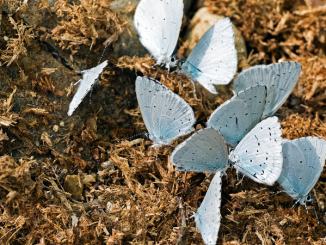
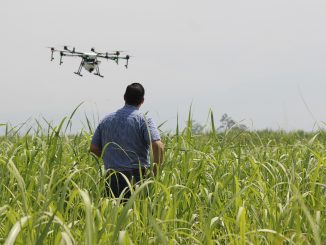
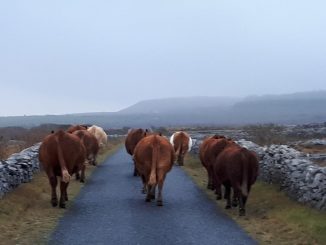
1 Trackback / Pingback
Comments are closed.